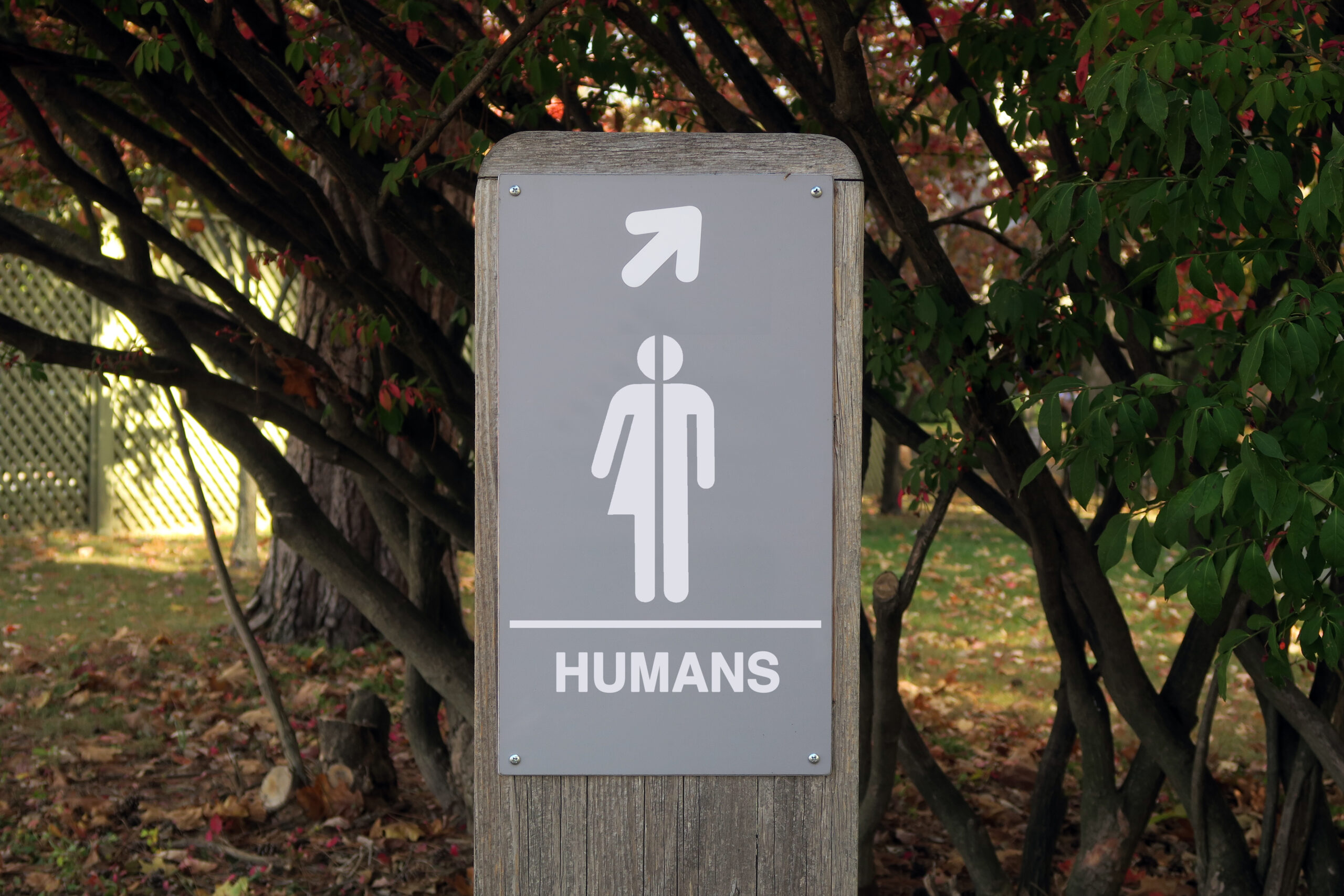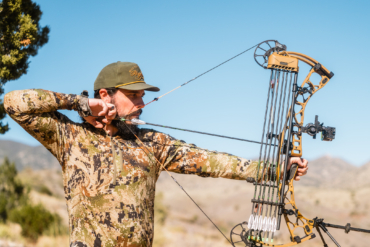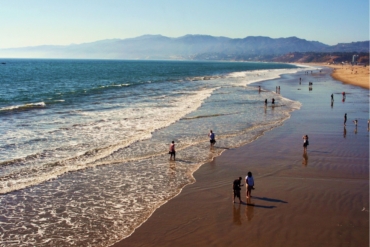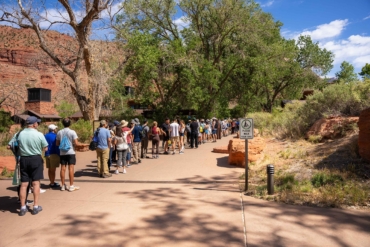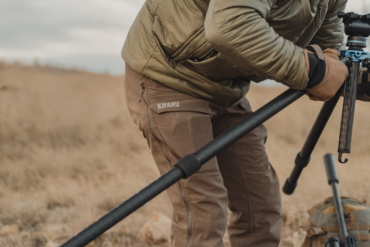Gear designed for men has traditionally dominated the outdoor industry. In the past few decades, we’ve seen women’s gear explode onto the scene in significant ways. Women are no longer saddled with oversized equipment or hand-me-downs that only marginally work. So as we move toward a more inclusive outdoor space, what does all of this mean for those who identify outside of the binary?
In recent years, there has been a growing movement towards gender-neutral outdoor gear that is designed to meet the needs of everyone, regardless of gender identity.
Are we really seeing a move toward progress, or are we seeing a clever marketing strategy aimed at making a few bucks while the gettin’s good?
The ‘Shrink It and Pink It’ Years

I once wrote a pretty scathing op-ed about the “Shrink It and Pink It” movement in the hunt space. If you’re unfamiliar, it was this trend of taking men’s gear, making it smaller, adding a few pink details, and calling it women’s gear. It extended far beyond the hunting world, but that was an area where it was most obvious. There were no redesigns and no changes to body type or fit. Instead, we saw a poor attempt at getting a piece of that growing and profitable female hunting market. Brands were quick to jump on the bandwagon.
It pissed me right the fuck off.
Just imagine if men only had the option of buying jeans that were sized-up versions of women’s pants — no change to cut or style. Maybe a nice pair of skinny stretch jeans, wider in the hips, high-waisted, but with blue stitching on the back pockets, so you know they’re for boys. How about some leggings, but with a cargo pocket?
See how ludicrous that seems?
We deserve outdoor gear that’s designed for us and fits our bodies. Full stop. After far too long, we’re getting there. Women have a ton of options across the spectrum of outdoor equipment — for hunters, climbers, and triathletes — as well as apparel made specifically for our shape and size. Plus-size technical gear has made really impressive strides.
Now that we’ve overcome the shrink it and pink it craze, it seems the new trend with major outdoor brands is gender-neutral gear. Before we all rejoice in the move toward progression, I think we need to step back and analyze what’s being made and who the benefactors really are. Is this a move toward inclusion, or is this a clever marketing technique aimed at a “new” demographic?
Gender-Neutral Outdoor Gear
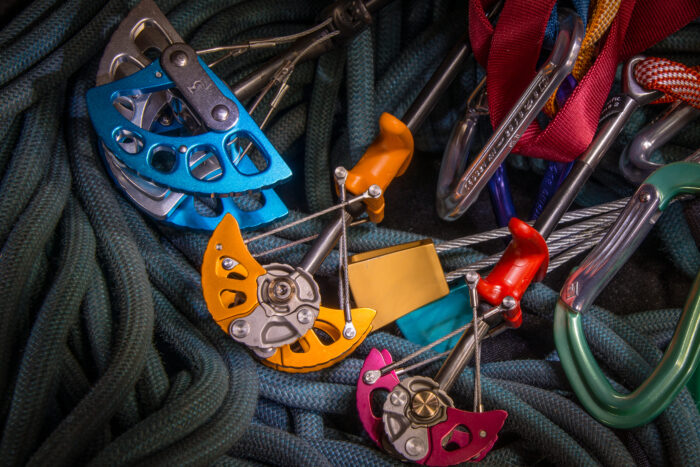
Gender-neutral outdoor gear campaigns tend to focus on recognizing that not everyone fits neatly into the binary. They celebrate that outdoor activities should be accessible to all. That is rad. And something I think just about anyone with a level head can get behind.
From hiking boots to backpacks to fleeces to camping gear, much of the industry is now embracing inclusive designs that accommodate a wider range of body types, designs, and preferences.
These brands are bucking norms with color schemes that don’t fall into the “boy/girl” color palettes. The sizing is also drastically expanded in both directions (unisex shoe sizes 5-15 are a good example), offering sizes for those who traditionally struggle to fit into outdoor gear and apparel in general. No one is too small or large to be outside, and many of these expanded size ranges reflect that reality.
Where’s the Beef? It’s Right Here

I’d like to direct your attention to the elephant in the room. As a woman who struggled to find the gear that worked with my body, this is my unfortunate yet likely realistic assumption: in many instances, this gender-neutral gear just isn’t going to have the performance as gendered gear.
Before you send an angry mob to my house, hear me out.
Regardless of how I identify, I was born in this body. Though society and medicine have made great strides when it comes to diversity and inclusion, specifically when it comes to gender, our bodies really haven’t. The reality is that my body is coded to be what it is, and it will never have the size or proportion as that of a cis-gendered male.
When we start getting into gender-neutral gear and, more importantly, gender-neutral sizing, I have to wonder if brands aren’t just reinventing a crappy, outdated wheel. “One size fits all.” (Insert dramatic, horror movie music here.)
Are these companies just pulling out the old one-size-fits-all card and renaming it gender-neutral in the name of staying relevant? It’s something we should all be asking ourselves. One size has never, and will never, fit all.
Stretch It, Shrink It, or Rainbow It…
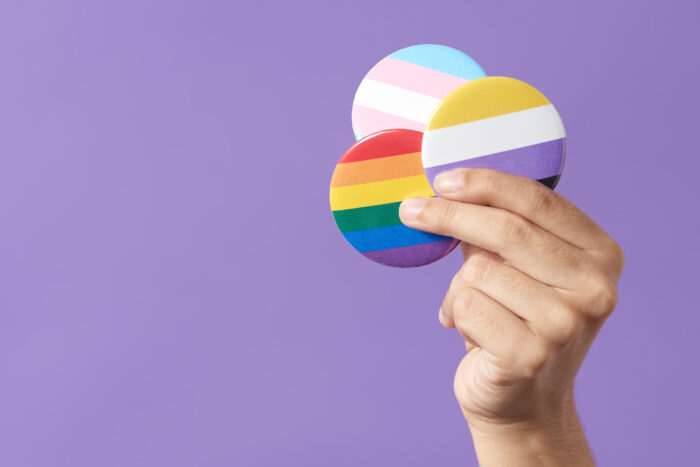
Women have been battling for generations to get gear that fits their bodies. As someone who puts the performance of gear far ahead of its appearance (as many of us on GearJunkie do, regardless of our gender), this move toward a less stellar fit and function in the name of inclusion feels, well, cheap.
It’s like this new “shrink it and pink it” movement all over again.
“No, the gear won’t fit you well, but we made it just for you… sort of.”
This push towards gender-neutral outdoor gear is definitely a positive step towards creating a more inclusive and welcoming outdoor community. The expanded sizing is amazing, and I think that is something that should have been adopted years ago.
By recognizing that not everyone fits neatly into gender binaries, the industry is absolutely opening up new possibilities for people to explore the outdoors. But are they doing it in a way that sacrifices performance? That’s still to be seen. Depending on the product and brand, it certainly could be the reality.
I think we need to be critical of this because of the opportunity to take advantage of a new demographic. The odds of it happening are just too dang high, and we’ve certainly seen it happen before.
Making sub-par equipment in the name of inclusion feels somehow worse than not recognizing it at all.
More Than a Label

Some of the best outdoor gear on the market is already pretty gender-neutral in the way that, at least in the hunting world, you really can’t tell the difference between men’s gear and women’s gear other than the size, fit, and proportion differences — differences that really do matter.
A hunting pack with a women’s specific frame, designed with rib, spine, and hip proportions in mind, will fit a cis-gender woman and a transgender man better than any unisex or gender-neutral pack. When you start to load that pack down with serious weight, those fit differences are going to matter.
Outdoor brands that are being truly inclusive stopped adding pink details to women’s hunting gear. That is a huge step toward inclusivity, regardless of what section you have to click on to buy it.
Gear Needs to Perform

Granted, I’m relatively unaffected because I now have options that fit both my body and the way I identify. And maybe this opinion will garner me a heap of hate, but to me, if a transgender man wants performance hunting gear that will work with the build of his body and not let him down in the field, it is better for him to get online and buy gear from the women’s section than it is to buy ill-fitting gear from the gender-neutral section that fails when he needs it most.
If a non-binary person wants hiking boots that won’t destroy their feet on an insane long-distance through-hike, I can almost assure you that shopping for boots labeled with the gender they were assigned at birth will hurt less than the blisters that the gender-neutral boots are bound to give them. We should not be hindering the performance of non-binary outdoor athletes, all in the name of inclusivity.
I’m not saying there isn’t some level of sting that will be felt. In reality — we’re all looking for the best gear, and it already exists. I don’t think we should expect those outside the binary to settle for a poor fit so that they can have a gender-neutral label. It seems like a step backward and a slap in the face.
My Opinion on Gender-Neutral Gear
I don’t know. Personally, I don’t care who you are, how you identify, who you sleep next to, or what color you prefer — so long as you don’t litter on that damn trail. I love the idea of any responsible outdoor-oriented person feeling welcome at the trailhead.
I’m also a cynic, and I tend to look at things with a pair of squinted side-eyes.
Are brands really trying to create a more welcoming environment with new lines of gear for those outside the binary? Maybe. Hopefully.
More so, and unfortunately, it seems like it might just be clever marketing and a new demographic to sell gear to. With my glass gloriously half-full, this all just feels like a new thing to shrink and pink.
